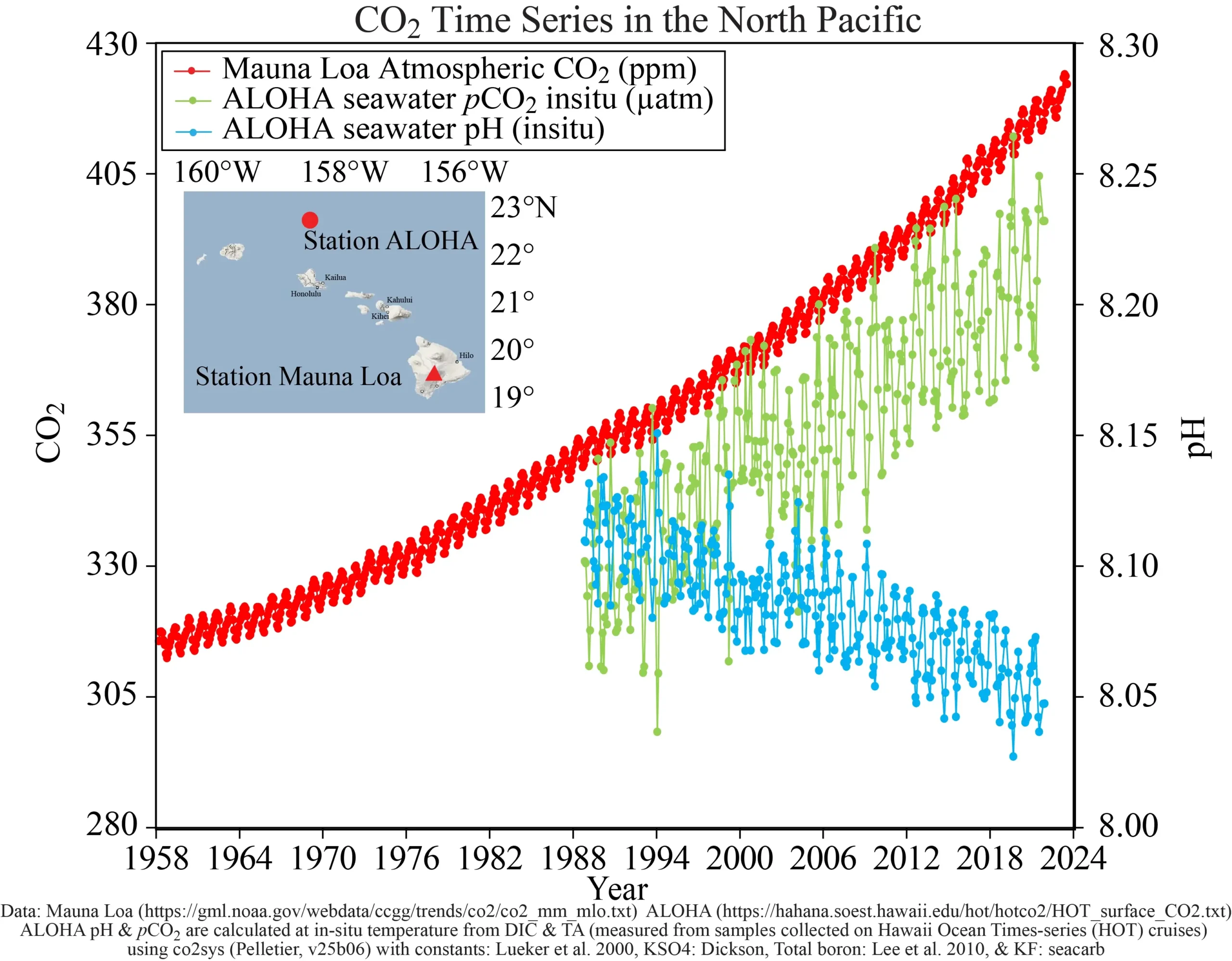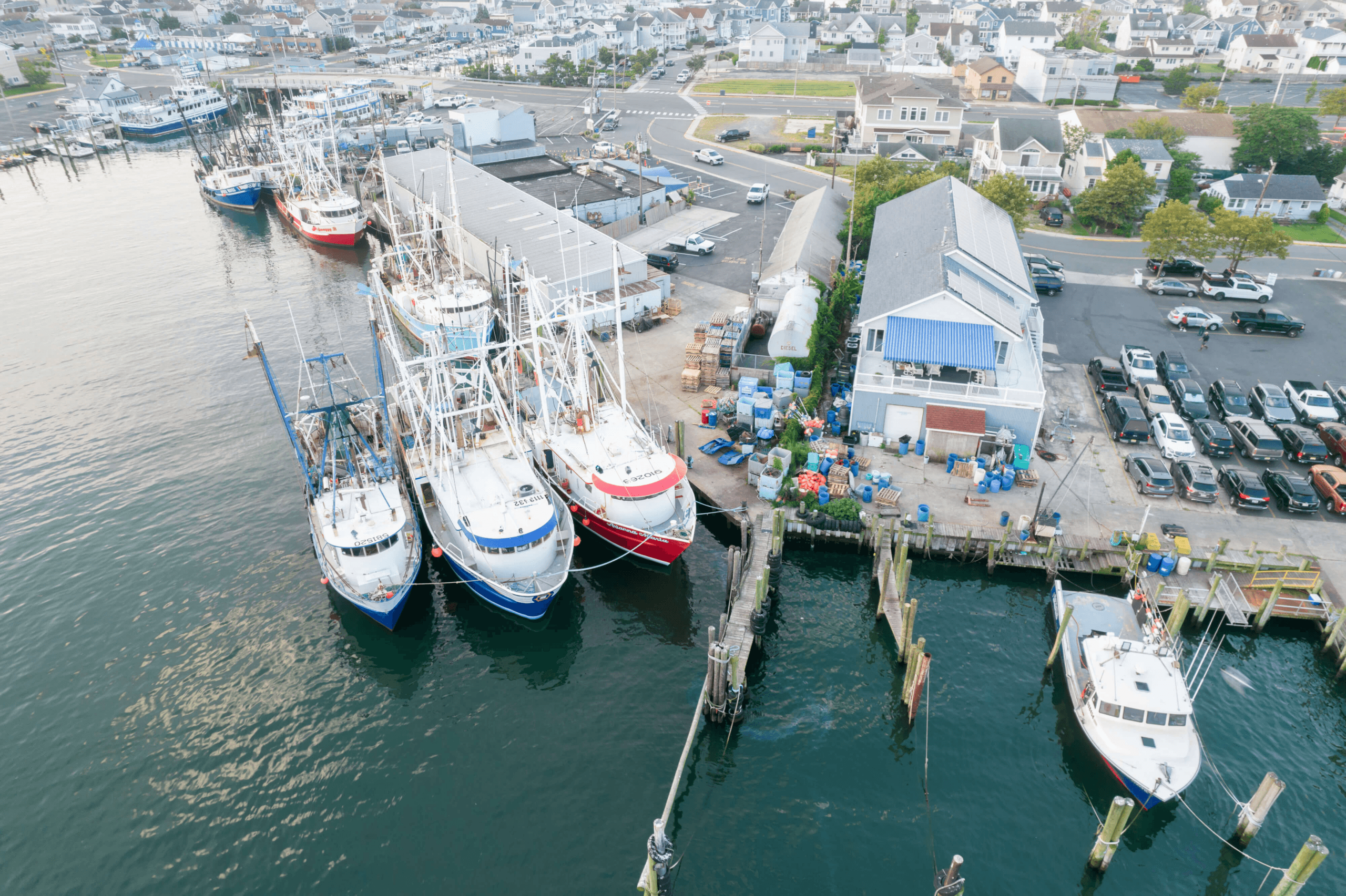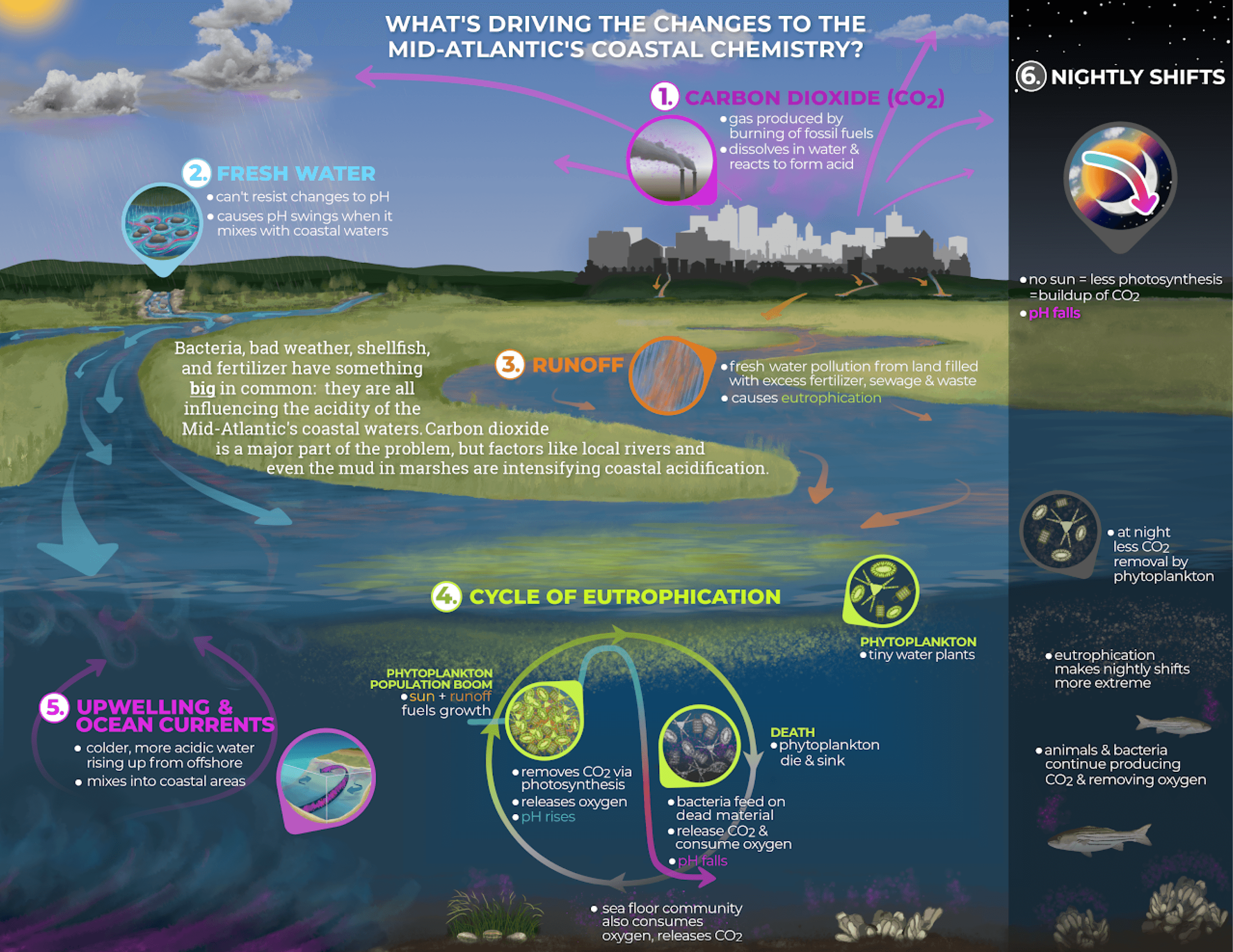Why It Matters
Carbon dioxide gas dissolves so readily in seawater that approximately one quarter of human caused CO₂ emissions become sequestered in the ocean. Once in the ocean, CO₂ combines with water to form a weak acid, resulting in a change in the chemistry of the sea. As the CO₂ increases, the pH decreases; indicating increasing acidificication.
Changes in Chemistry Impact Marine Plants and Animals
Ocean acidification also influences CO₂-driven changes in the solubility of calcium carbonate minerals (CaCO₃) used by many marine plants and animals to build their shells and skeletons.
The solubility of CaCO₃ minerals depend on the amount of dissolved carbonate ions in seawater.
More CO₂ and lower pH reduces the concentration of carbonate ions, making it more difficult for many organisms to make shell material.

Ocean CO₂ and pH from NOAA: Correlation between rising levels of CO₂ in the atmosphere at Mauna Loa with rising CO₂ levels in ocean at Station Aloha. As the CO₂ increases, the pH decreases; indicating increasing acidificication.

A Compounding Crisis
While increased atmospheric CO₂ is the primary driver of coastal and ocean acidification in surface ocean waters, the coastal oceans and estuaries experience additional processes – both natural and anthropogenic (human-caused) – that play a role in changing water chemistry.
Natural input of nutrients to the ocean via rivers, groundwater, and atmospheric deposition promotes algae growth in estuarine waters, making these estuaries areas of high productivity. In a process known as eutrophication, additional input of nutrients to the estuary and coastal ocean (due to use of fertilizer, wastewater treatment, and changing land use) fuels additional growth of algae during the productive spring and summer seasons.


If larger animals like fish and shellfish do not consume the algae blooms, the organic material will be broken down by bacteria leading to conditions of low oxygen called hypoxia.
Bacterial respiration not only consumes oxygen, but also produces CO₂, which results in seasonal decreases in pH in excess of the acidification driven by the atmospheric CO₂. This is a particularly serious issue compounding acidification in the Mid-Atlantic estuaries.

References
Get Involved
If you are interested in learning more about MACAN and the work we do, please sign up for our monthly newsletter. You can also read our 2024 to 2028 Work Plan.

The Mid-Atlantic Coastal Acidification Network. All Rights Reserved.

